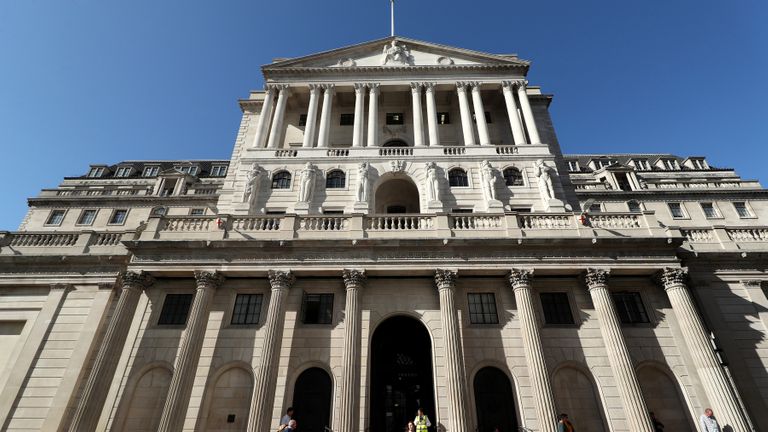Bank of England governor highlights worker shortage worry as recovery seen ‘levelling off’
Bank of England governor Andrew Bailey said he was concerned about worker shortages persisting as he acknowledged the UK’s economic recovery is levelling off.
He identified the problem as one of the key issues as he was quizzed by the Treasury select committee over latest Bank forecasts that inflation will rise to a ten-year high of 4% later this year.
Mr Bailey told MPs that the end of the furlough scheme this autumn ought to help with current worries about “getting jobs filled” amid record vacancies across the economy.
But he said that while other pressures on the economy caused by supply chain bottlenecks and higher commodity prices looked likely to fade, he had a “bit more concern about persistence in the labour market story”.
Mr Bailey also told MPs that the economic impact of the pandemic “has attenuated over time”.
But he added: “At the moment we are seeing some levelling off in the recovery.”
Mr Bailey told MPs that this had been seen across a “broad range of indicators” from mobility to payments data.
It comes after a key business survey suggested the recovery was starting to falter last month thanks to the impact of labour and supply shortages as well as a rise in COVID-19 cases deterring consumers.
Labour shortages have been seen across the economy from HGV drivers – where the industry says there is a shortfall of 100,000 workers – to meat processing, where an exodus of eastern European staff has left big gaps.
Mr Bailey identified issues including migration caused by COVID-19 and Brexit as well as the departure of older workers and men from the labour market as key factors behind the driver shortage, as well as training, surging demand and tax changes that reduce the take-home pay of self-employed contractors.
Meanwhile, the governor also revealed a split over the arguments underpinning when the Bank might start to scale back the emergency policy measures introduced to to try to cushion the economy from the coronavirus crisis.
In response to the crisis, the Bank has dramatically eased policy by slashing interest rates to 0.1% and pouring billions more into its bond purchasing scheme, known as quantitative easing.
When officials last month voted to keep both policies on hold there was just one vote of dissent – regarding QE.
But the governor revealed to MPs that there was a 4-4 split between members of the Bank’s monetary policy committee on the underlying question of whether the economy had recovered enough to meet the minimum conditions needed to start to tighten policy – that is, half thought that it had.
Another question from the committee to Mr Bailey and his Bank colleagues concerned the impact of the announcement of a national insurance hike to pay for social care and NHS spending.
Deputy governor Ben Broadbent said officials at Threadneedle Street had not yet made any projections on the policy but he said his impression was that the tax rise could be offset by the rise in spending which will boost the economy.
The Bank is likely to publish an assessment of the policy’s impact as part of its next monetary policy report in November, MPs were told.

